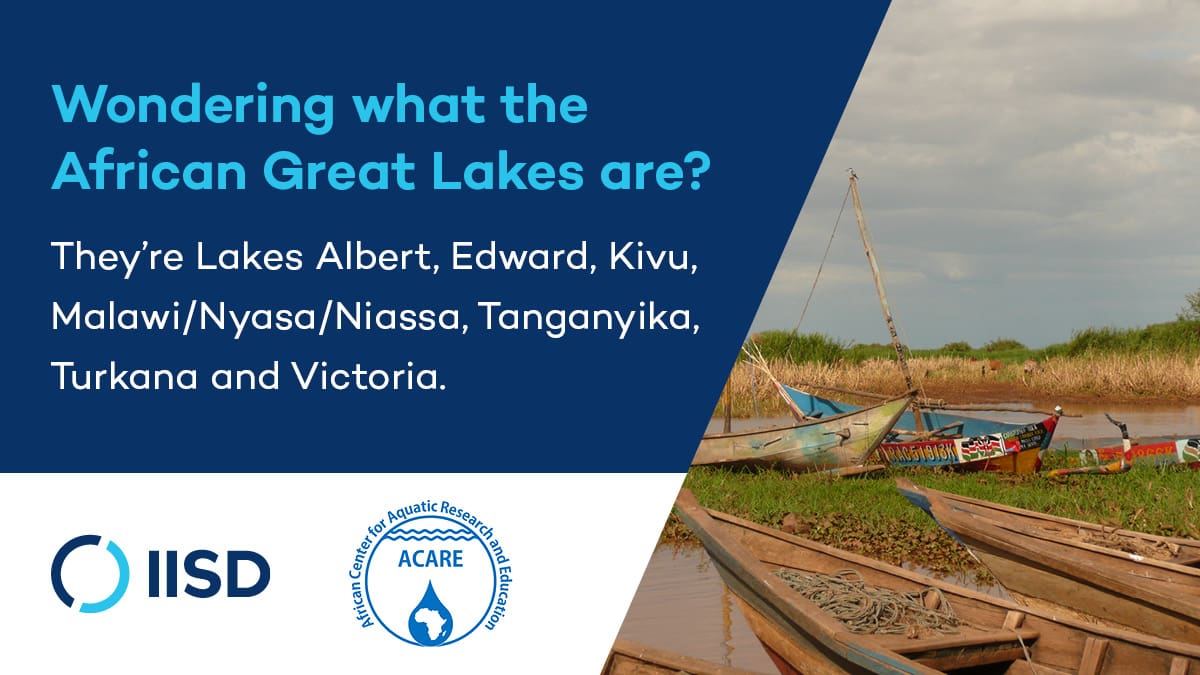Current Research
Scientists from Two Continents Working Together to Improve the Health of the African Great Lakes
World-class scientists and researchers from IISD Experimental Lakes Area, North America and Africa are putting their heads—and expertise—together.
They are tackling some of the most pressing issues—algal blooms, climate change, invasive species, fragile fisheries, to name but a few— that threaten the African Great Lakes, as well as North America’s freshwater supplies, today.
What are the African Great Lakes?
The African Great Lakes are highly valuable natural resources, renowned for rich fisheries and “biodiversity hotspots.” Consequently, they, and the ecosystem services they provide, underpin the welfare and livelihoods of over 50 million people across 10 countries. Despite the recognized importance of the African Great Lakes, these vital ecosystems and their livelihood support systems are threatened by the impact of human activity by numerous anthropogenic stressors at local, regional, and global scales.
The seven African Great Lakes are lakes Albert, Edward, Kivu, Malawi/Nyasa/Niassa, Tanganyika, Turkana, and Victoria.
How does this project work?
The partnership between the International Institute for Sustainable Development (IISD) and the African Center for Aquatic Research and Education (ACARE) provides an opportunity for the world’s freshwater laboratory and networks on the African Great Lakes to come together and strengthen science on large freshwater resources and the countries in which they reside.
IISD-ACARE combines the legal and policy expertise of IISD’s vast expert staff with ACARE’s newly created African network of large-lakes experts and scientists in Burundi, the Democratic Republic of the Congo, Ethiopia, Kenya, Malawi, Mozambique, Rwanda, Tanzania, Uganda, and Zambia.
What are we working on?
When it comes to putting our heads together on research, our researchers are actively participating in six Advisory Groups that were created to address specific issues on each of the African Great Lakes. Members of each group are harmonizing priorities on each of the lakes to advance work on scientific inquiry, monitoring, climate change, and education and training, among other issues.
We are also thrilled to welcome emerging women freshwater scientists every year who travel from Africa to visit IISD Experimental Lakes Area, dive into the research, attend conferences and share expertise and experience with their North American counterparts. You can learn more, and make the African Women in Science program happen, by clicking here.

How can I learn more?
To learn more about the project, or to discuss research and collaboration opportunities, you can visit the ACARE website or contact us directly.